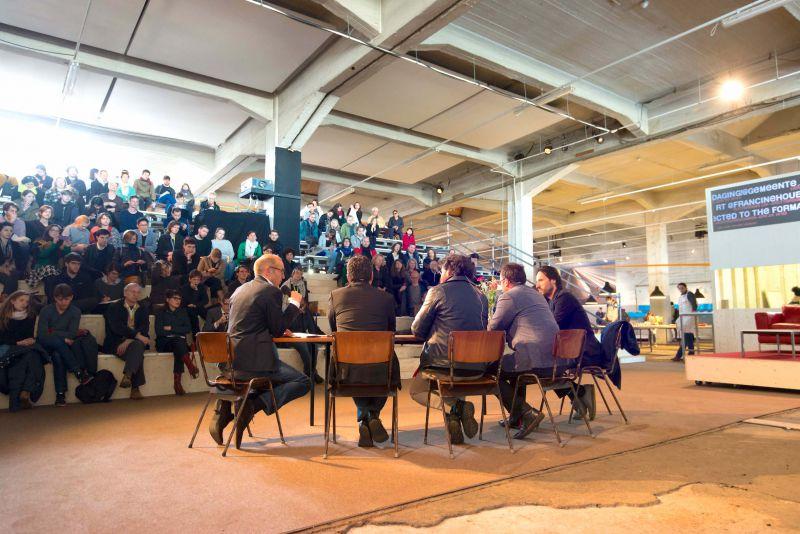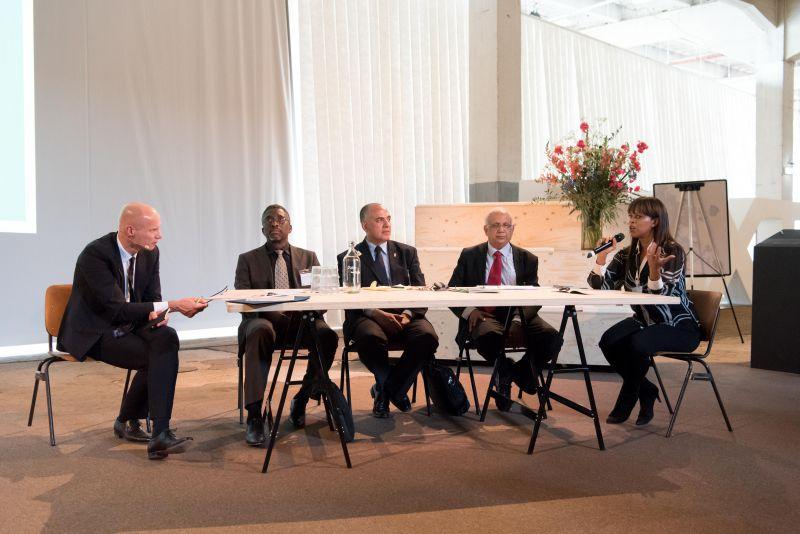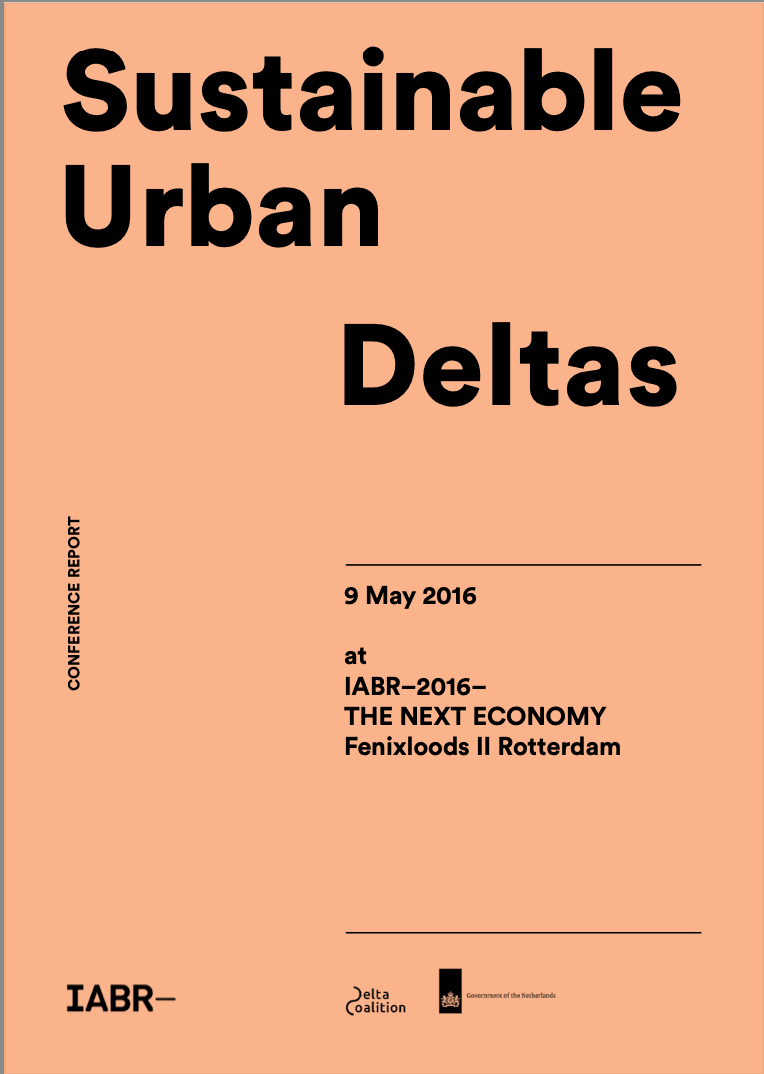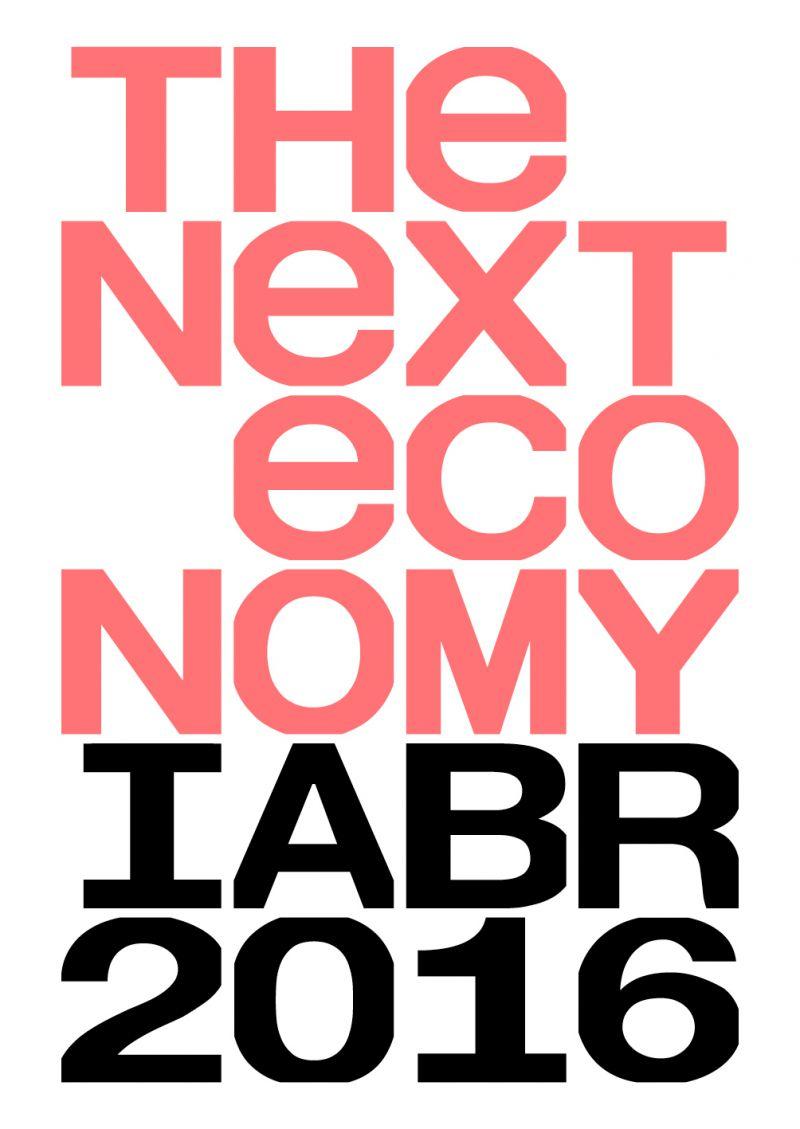The seventh edition of the International Architecture Biennale Rotterdam The Next Economy offered ten weeks of discussion and exchange on the future of the city, including Next Talks, Next Salons, Next Steps, Next Meet-Ups, Next Walks (tours and walks) and Next op Zuid.
Program
What's Next? - IABR 2016

Next Talks
Every Friday afternoon, a Next Talk took place in the auditorium of The Next Economy exhibition. International speakers that stimulate and intensify the debate about the Next Economy include Francine Houben (architect, Mecanoo, Delft; curator 1st IABR, Mobility), Anab Jain (director Superflux), Keller Easterling (architect, Yale School of Architecture, Connecticut), Mark Swilling (University of Stellenbosch and Sustainability Institute Cape Town), Jack Self (REAL Foundation, London; curator 2016 British Pavilion, Venice Biennale), Edgar Pieterse (director African Centre for Cities, University of Cape Town) and Oliver Wainwright (The Guardian, London).
Next Steps with Ruimtevolk
On six Tuesday evenings, Ruimtevolk and the IABR highlighted the issues raised by the quest for the Next Economy. How do designers, administrators, and professionals, active on the local, regional, national or international scale, tackle the issues the IABR 2016 raised: the energy transition, the healthy city, and the productive city? How can designers contribute to a more inclusive city? How can design contribute to an urban economy that adds local value and is circular? In short, which are the concrete Next Steps for design, planning, and governance? With Henk Ovink, Jeroen de Willigen, Ivonne de Nood, Steven Delva en Martijn Duinveld, Joachim Declerck, Joris Tiebout, Imke Carsouw-Huizing, Yassine Salihine, Vincent Cardinaal, Dirk Sijmons, Roeland van der Schaaf, Pallas Agterberg, Isabelle Vries, Rick Bosman, Hetty Linden, Els Vervloesem, Martin Dijst, Ad de Bont, Ton van Rietbergen, Lucas de Man, Marieke Berkers, Josse de Voogd, Kim Putters, Hans Tijl, Elma van Boxel en Indira van ’t Klooster.
Next Salons
On four Sunday afternoons (April 24, May 22, June 5 and 19), Dutch and international guests joined Maarten Hajer in a relaxed setting as he – supported by columnists and visuals – zoomed in on current events that have an impact on the debate on the Next Economy.
Next Generation
For IABR 2016: Next Economy, children of De Schalm, a primary school in the Rotterdam district of Katendrecht, developed a treasure hunt tour through the exhibition. When following this route other children too could cultivate their ideas about what the city of tomorrow might look like.
Next op Zuid
Many challenges that Rotterdam will have to face in the coming decades during the transition to the Next Economy can also be found in and around Katendrecht, where the IABR 2016 took place. Along with Afrikaanderwijk and Charlois, Katendrecht is at the heart of the transformation challenge. Local residents and small entrepreneurs in the area are wary of gentrification, of new developments at the expense of the current (affordable) living, working, and shopping space that will sooner or later push current residents from the area. Reason enough to look at the area through the lens of IABR 2016: How can we use spatial design here on our way to the Next Economy we want? The program Next op Zuid included lunchtime lectures, presentations, guided tours, workshops, and more. Here, the expertise of local partners and stakeholders is connected to the international knowledge network of the IABR. The IABR developed Next op Zuid in collaboration with a wide-ranging local alliance including the Afrikaanderwijk Cooperative, Verhalenhuis, Heijmans, AIR, De Rotterdam Tours and RAAF.
Social Harbour
At the request of the IABR and in collaboration with the Afrikaanderwijk Cooperative, Freehouse develloped an activity and intervention program in the Afrikaanderwijk in Rotterdam. Social Harbor demonstrates that dynamic reciprocity empowers future development and thus creates room for experiments regarding new forms of work on the basis of locally available qualities and expertise. Workshops, presentations, and knowledge exchange between local, national, and international experts are used to examine how entrepreneurship, migration, identity, and the power of networks set the stage for the Next Economy of Rotterdam South.
The Next Story
At the request of IABR 2016 the Verhalenhuis Belvédère developed The Next Story. In ten afternoon sessions during the biennale, remarkable stories of inhabitants of Katendrecht will be shared with the audience. What is their Next Story? Based on their past and present situation, what future would they want, and how is their narrative related to Katendrecht? Together, these personal anecdotes will show how active individuals can influence the development of their neighborhood, and even their city.

Sustainable Urban Deltas Conference
On Monday 9 May 2016, IABR hosted the international conference Sustainable Urban Deltas, part of the official program of the Delta Coalition, a new alliance of 12 countries that, despite all of the existing international consultative structures and conventions, have come together over a shared agenda they want to implement.
In 2016 the Netherlands chaired the Delta Coalition and its first official high (administrative) level meeting took place in Rotterdam on 10 May. Prior to the official summit the IABR, together with the Dutch national government, brought government officials and professionals from around the world together for Sustainable Urban Deltas : How can we make the urban deltas of tomorrow more inclusive, sustainable, productive, and livable? How can we make our delta cities physically and socially resilient for all citizens?


